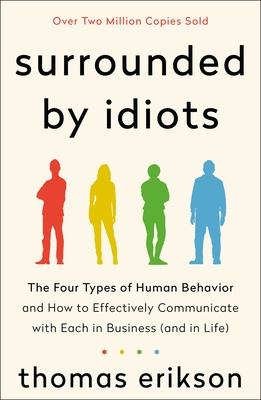More on this book
Community
Kindle Notes & Highlights
Read between
July 25 - August 5, 2024
It is both easy and dangerous to categorize someone who behaves differently from you as ignorant, wrong, or even thickheaded.
method to describe the differences in human communication. This method is called the DISC—an acronym that stands for Dominance, Inspiration, Stability, and Compliance ability—system.
Communication Happens on the Listener’s Terms Does that sound strange? Let me explain. Everything you say to a person is filtered through his frames of reference, biases, and preconceived ideas.
By adjusting yourself to how other people want to be treated, you become more effective in your communication.
You help other people understand you by creating a secure arena for communication—on their terms.
Flexibility and the ability to interpret other people’s needs is what characterizes a good communicator.
“We see what we do, but we do not see why we do what we do. Thus, we assess and appraise each other through what we see that we do.” These words come from the psychoanalyst Carl Jung.
The stronger your self-understanding is, the greater your probability of adapting to the people around you.
If there is anything that characterizes Yellow behavior, it’s unlimited optimism and enthusiasm.
Rhetoric isn’t the art of talking but rather the art of getting others to listen.
Many truly successful people in society are often better listeners than the general average. They don’t willingly talk as much as they listen. They already know what they know, and to learn more they simply have to hush up and hear what others are saying.
If you can live knowing that most of the people you meet won’t buy what you say, well, then you don’t have a problem.
If someone doesn’t row the boat or take the helm, no amount of prayer will ever help.
We often assume others will behave the same way we would in any given situation.


